抱抱 (Boris)
一缕阳光, 一刻悸动, 还有那会心的微笑...21天加拿大海洋省 (5) 第 6 日 - Joggins化石岩壁
Around the Maritimes in 21 Days (5) Day 6 - Joggins Fossil Cliffs
第六日 - Joggins化石岩壁
Joggins Fossil Cliffs
这天是二十一天中唯一的雨天, 不得已去了计划外的Joggins化石博物馆. 却收获了此行意外的惊喜.
Joggins化石岩壁是加拿大第十五个联合国教科文组织世界自然文化遗产. 14.7公里的海岸经过芬迪湾海潮强力的冲刷, 形成了陡峭的岩壁, 使地层中三亿年前的化石得以露出. Joggins在三亿年前曾是赤道附近的热带丛林. 化石以热带植物的根茎叶居多. 不要幻想在此地发现恐龙(1.5亿年前)的化石, 三亿年前四足动物才刚刚形成, 在陆地上还十分稀少.
以前在博物馆看到不少化石, 隔着玻璃总有一种不真实的感觉. 也总觉得挖化石是科学家的工作. 没想到Joggins的化石十分丰富, 在海岸或岩壁中, 你可以轻易地捡起一块化石. 多数化石十分容易辨认. 有疑问时随行的工作人员可以马上帮忙解答.
亲手发现化石的挑战让全家人兴奋了很久. 亲手触摸三亿年时光的奇妙感觉让人久久回味.
唯一的遗憾是所有发现的化石都要交回博物馆. 这也引来了八天后更大的惊喜.
Joggins Fossil Cliffs is Canada’s 15th UNESCO World Heritage Site. The Joggins Fossil Cliffs, a 6.89 square kilometers palaeontological site along the coast of Nova Scotia (eastern Canada), have been described as the “coal age Galápagos” due to their wealth of fossils from the Carboniferous period (354 to 290 million years ago). The rocks of this site are considered to be iconic for this period of the history of Earth and are the world’s thickest and most comprehensive record of the Pennsylvanian strata (dating back 318 to 303 million years) with the most complete known fossil record of terrestrial life from that time. These include the remains and tracks of very early animals and the rainforest in which they lived, left in situ, intact and undisturbed. With its 14.7 km of sea cliffs, low bluffs, rock platforms and beach, the site groups remains of three ecosystems: estuarine bay, floodplain rainforest and fire prone forested alluvial plain with freshwater pools. It offers the richest assemblage known of the fossil life in these three ecosystems with 96 genera and 148 species of fossils and 20 footprint groups. The site is listed as containing outstanding examples representing major stages in the history of Earth.
How fossils form? A fossil is any evidence of ancient life preserved in rocks. Most plants and animals never become fossils, because they are destroyed or decay first. To become a fossil, a plant or animal must be quickly buried by mud or other fine sediment. Soft parts usually rot away, so what get preserved? Animal bones and some tree trunks can turn to stone, as cells fill in with minerals. Plans usually form an imprint in stone of the original shapes, sometimes covered with a thin film of carbon.
Joggins had seasons of monsoon-like rains during the Coal Age. Streams would overflow their banks and flood the lowlands, burying plans and animals under layers of mud and sand. At the same time, the surface of the land gradually sank, allowing the buried life to be preserved.
1.Joggins Fossil Cliffs, Aug 9
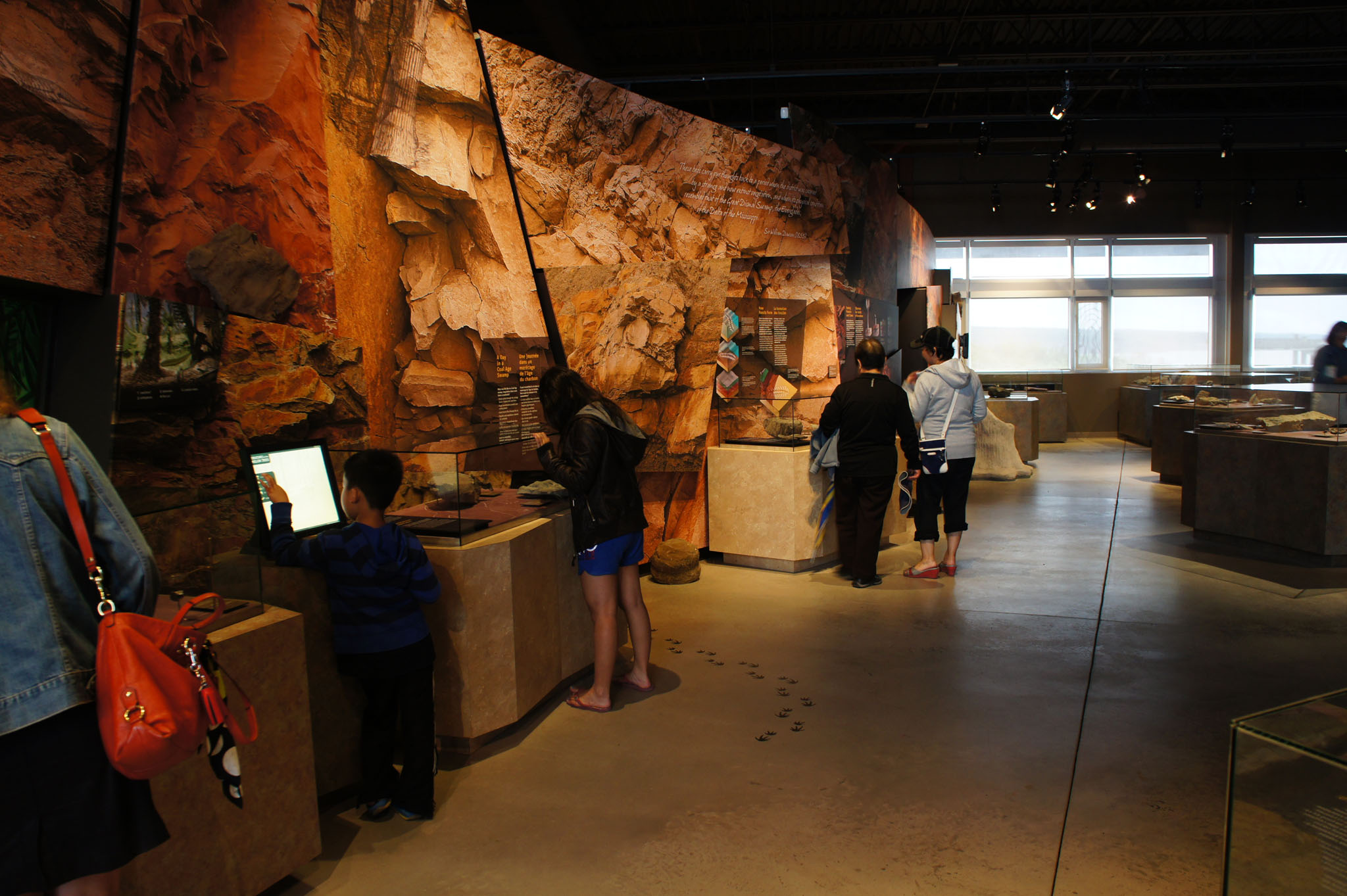
2.Joggins Fossil Cliffs, Aug 9
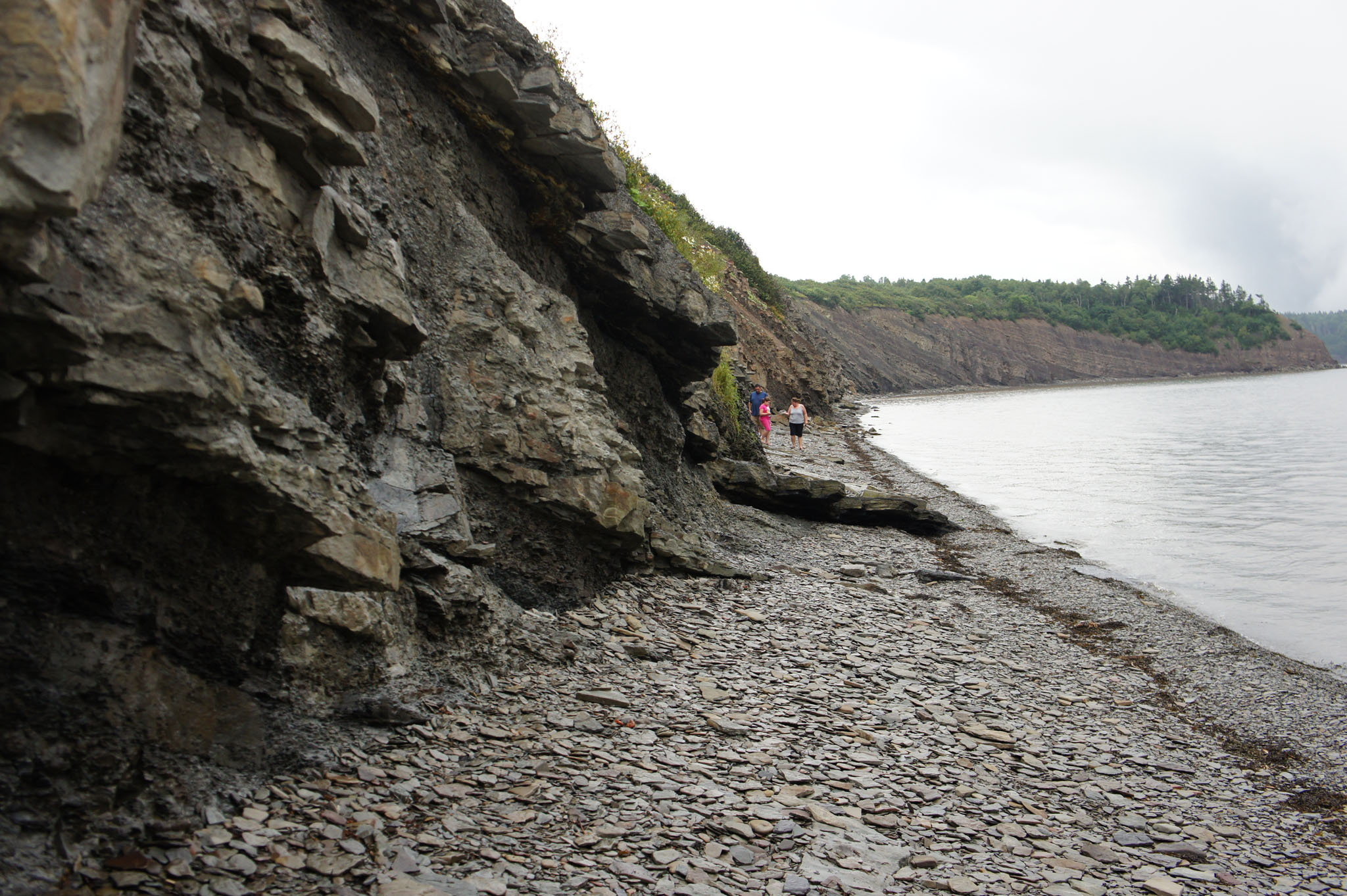
3.Joggins Fossil Cliffs, Aug 9
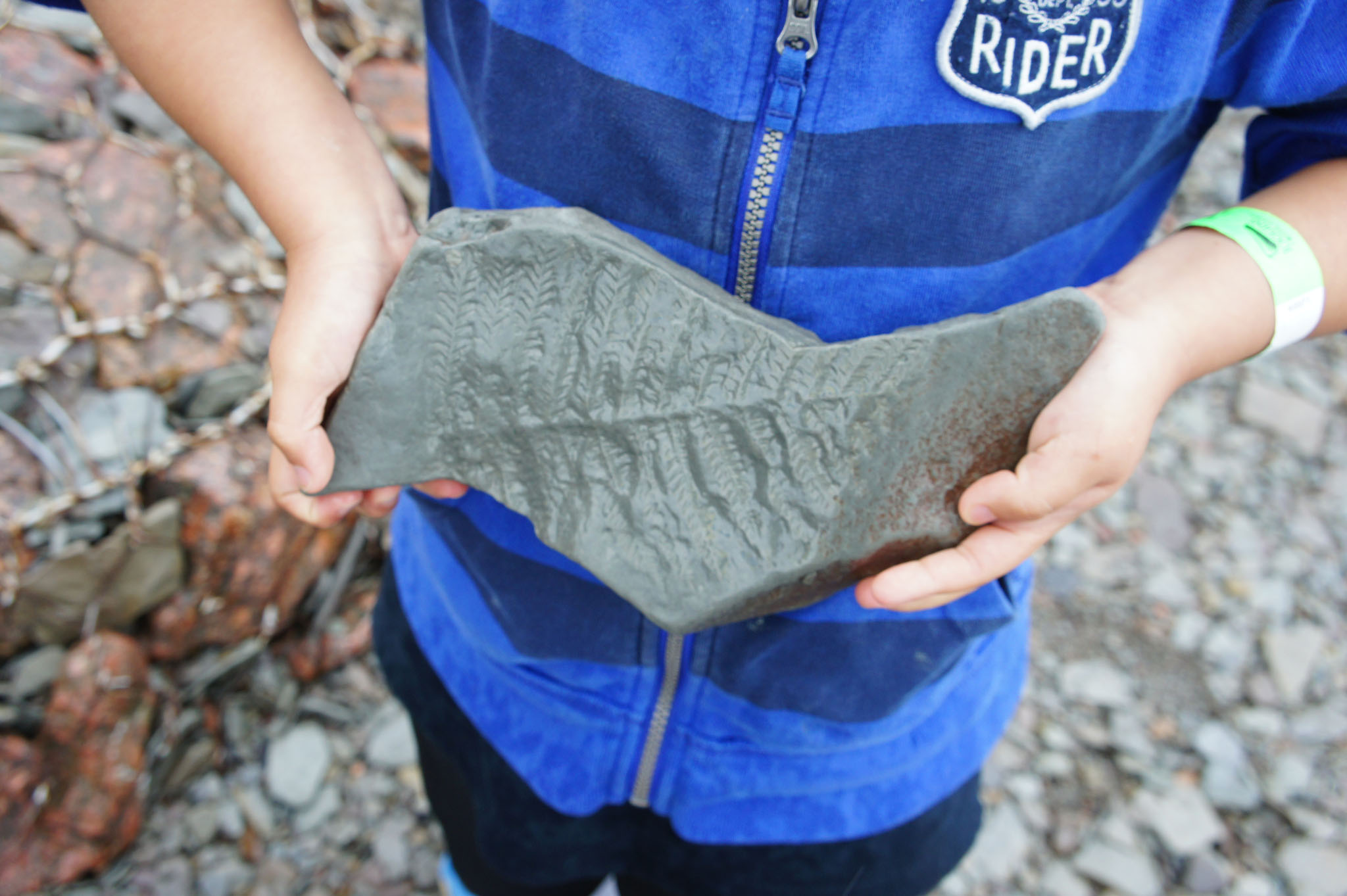
4.Joggins Fossil Cliffs, Aug 9
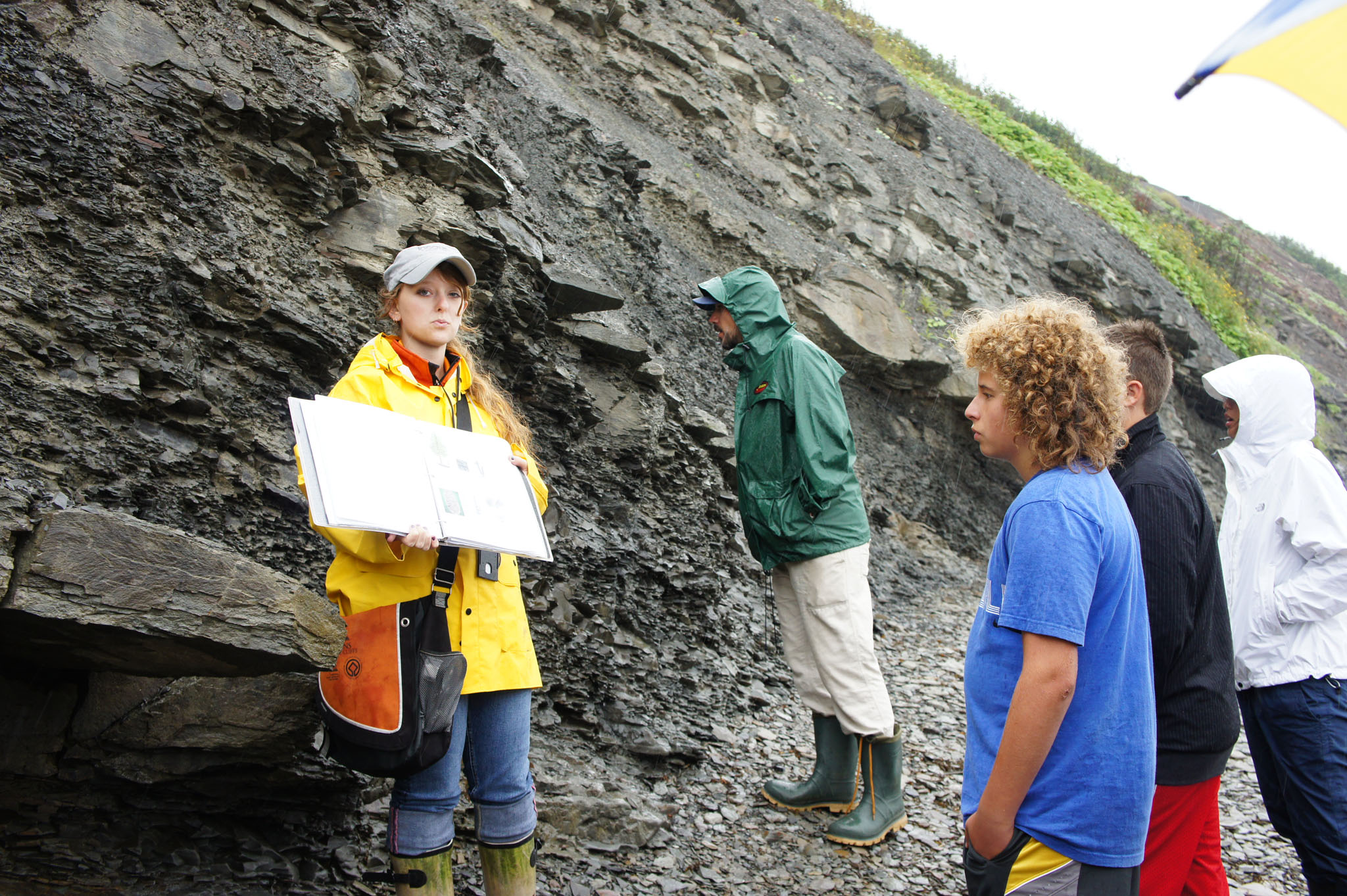
5.Joggins Fossil Cliffs, Aug 9
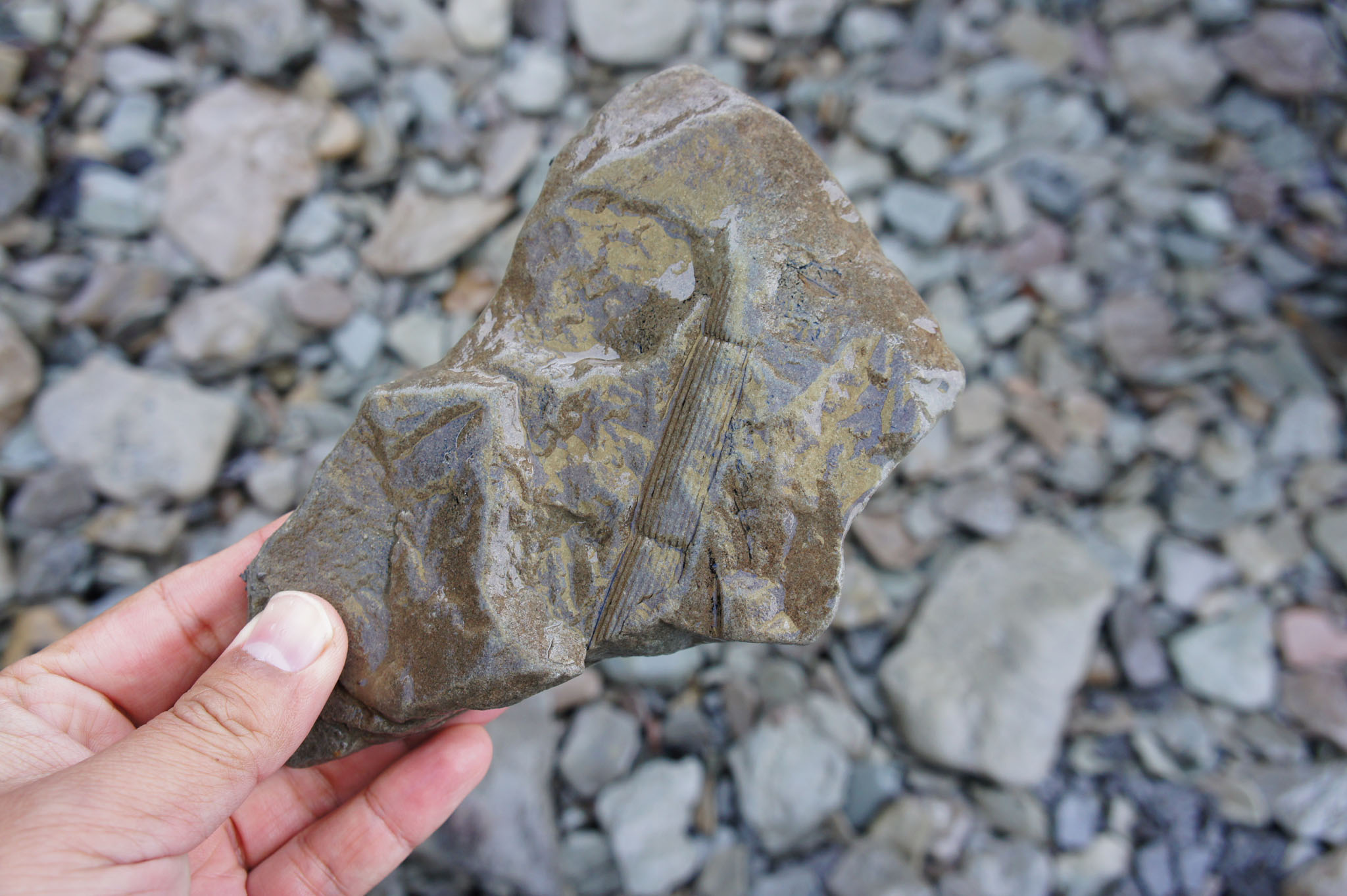
6.Joggins Fossil Cliffs - Tree fossil, Aug 9
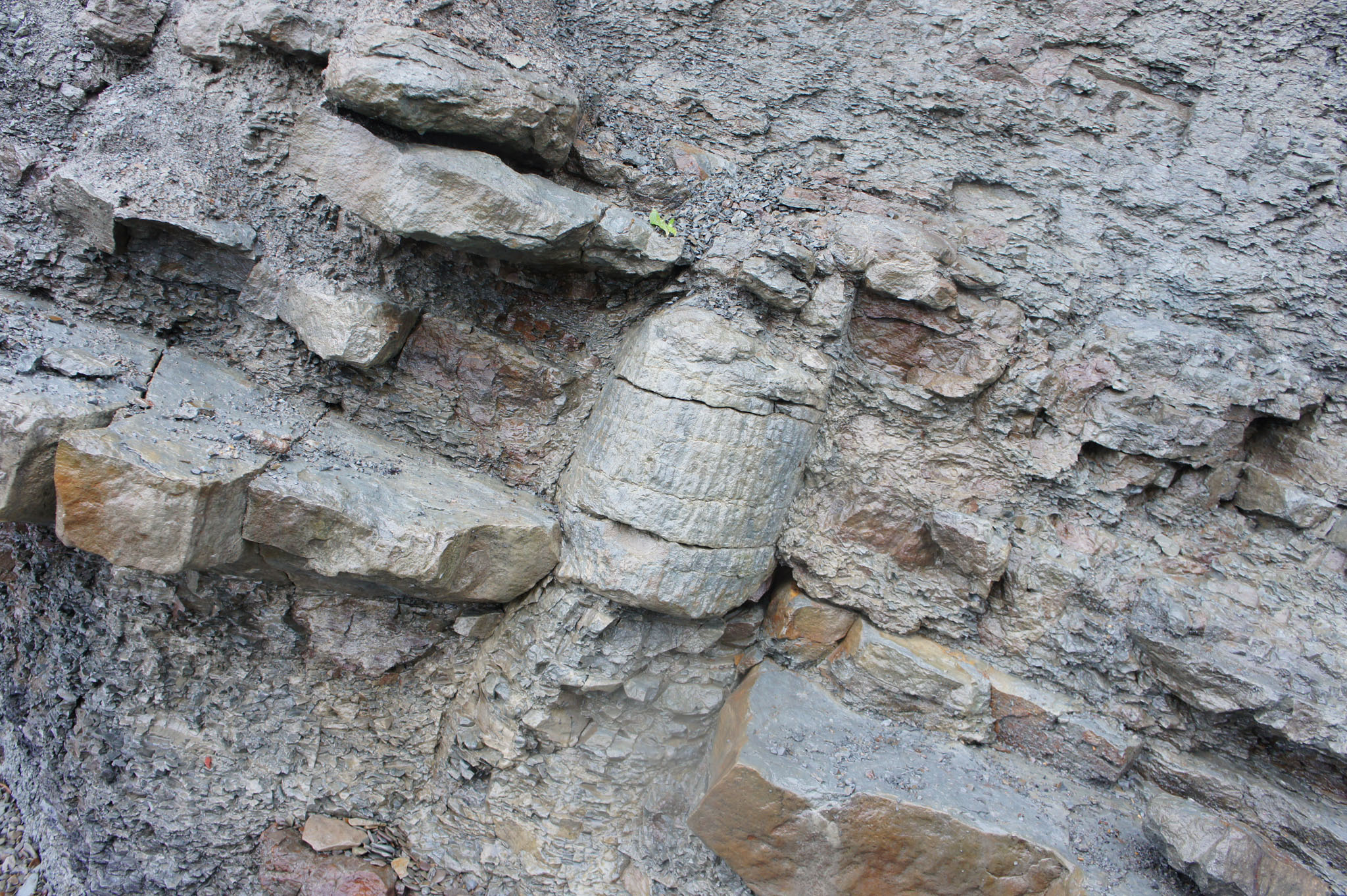
7.Joggins Fossil Cliffs - Root fossil, Aug 9
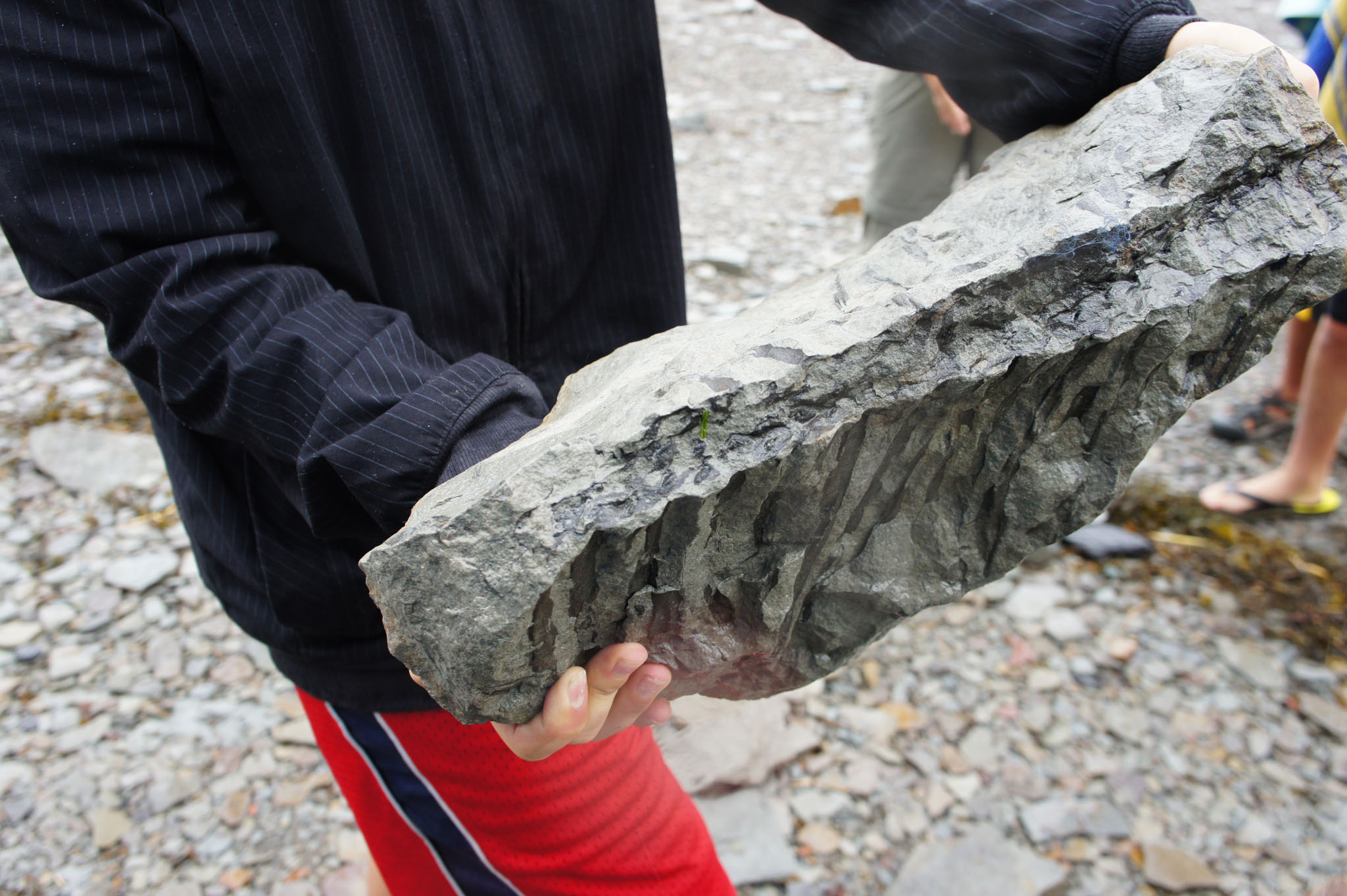
8.Joggins Fossil Cliffs - Tree fossil, Aug 9
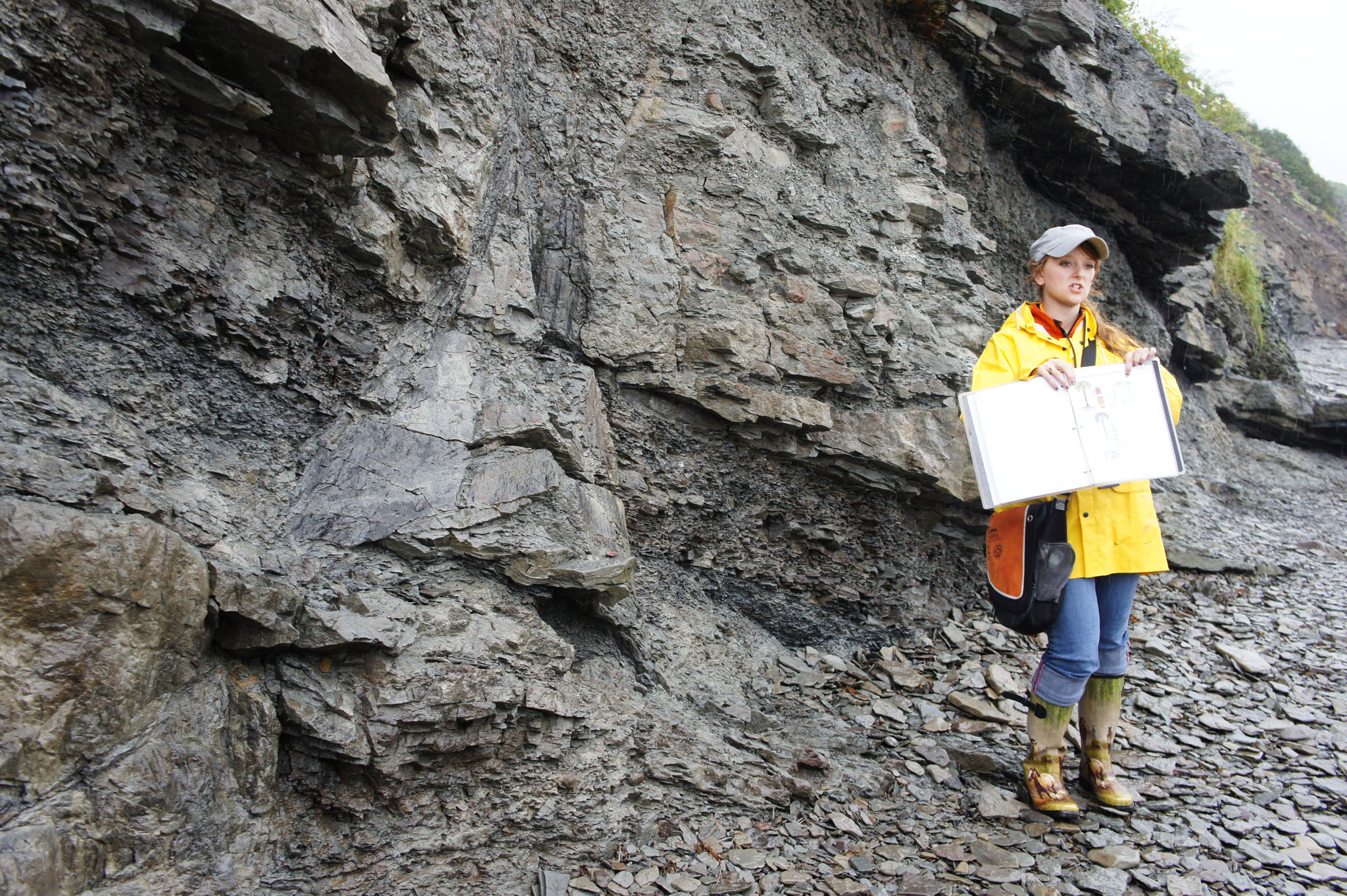
待续...
相关连接:
21天加拿大海洋省 (5) 第 6 日 - Joggins化石岩壁
21天加拿大海洋省 (7) 第 8/9 日 - 狂怒角,水公园,魔术山,龙虾镇, PEI跨海大桥
21天加拿大海洋省 (9) 第 11/12 日 - Hector古船博物馆, BELL纪念馆
21天加拿大海洋省 (11) 第 14 日 - 化石博物馆, 露易斯堡要塞
21天加拿大海洋省 (12) 第 15/16 日 - Halifax堡垒, Peggy Cove灯塔




